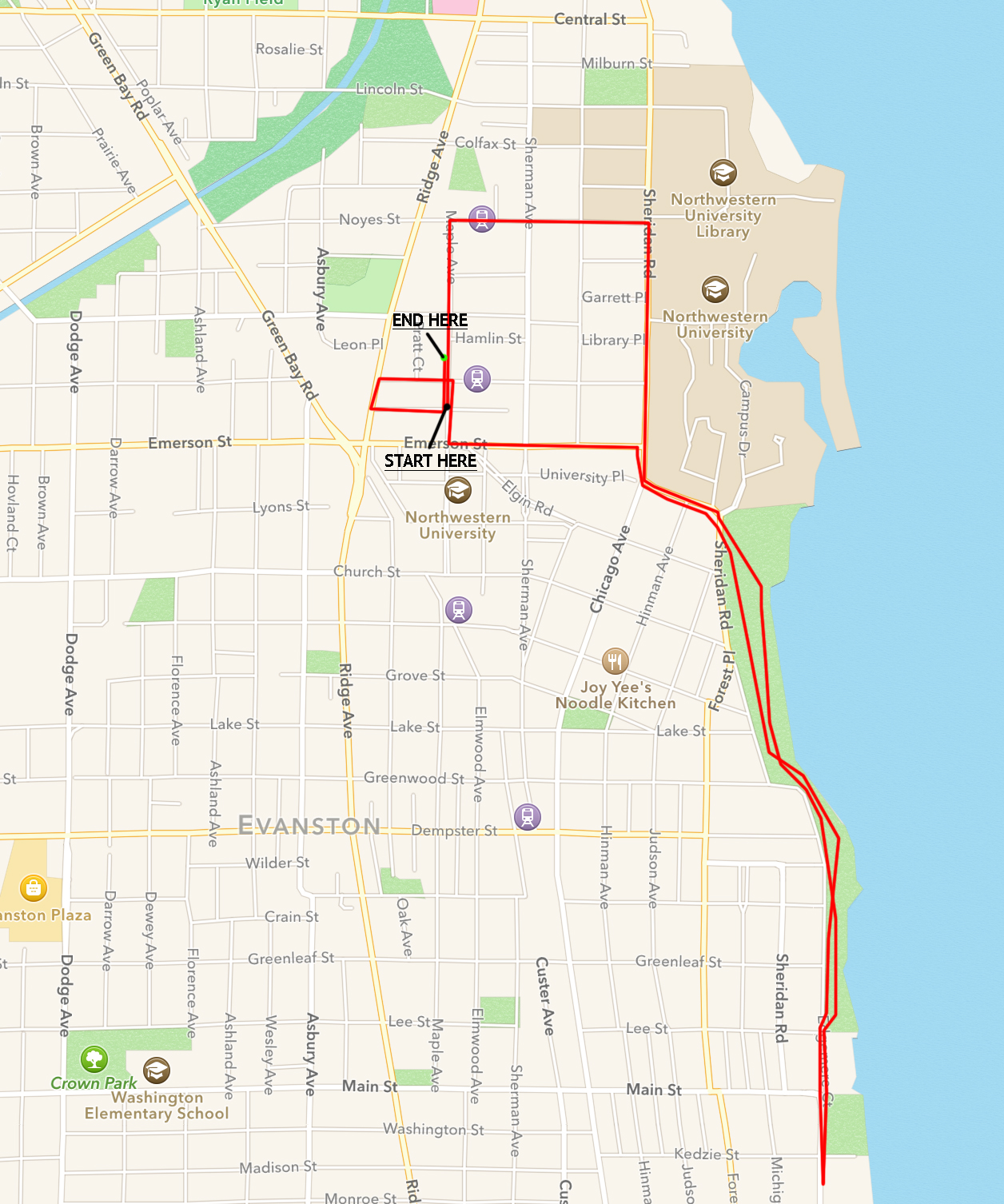XC from North by Northwestern on Vimeo.
Before the making of this video, I had no idea how much bouncing around running involves. Any runner could tell you that it’s not as nauseating as it looks. This was a chill 45-minute, six-mile run with my NU cross country teammate around campus, two days before our weekend race at Notre Dame. We set our own course and try to run on soft gravel and grass when we can.
The day before a race we typically run a little shorter and sprint strides up and down the football field in our racing shoes, which are super lightweight and have 3/4-inch spikes that dig into the ground for traction.
Most of us carb load and eat a clean healthy dinner the night before the race, and only eat battle-tested foods like protein bars, oatmeal, peanut butter, bananas and applesauce the day of the race. And, we have to chug water all week to make sure we aren’t dehydrated for race day.
We kick off race day with a run, of course. It’s called Dawn Patrol, and it’s a short 10-minute shake out to get our bodies ready the big run later that day. We also run a 10-minute warm-up at the racecourse about an hour before the start, then we change our shoes, get our numbers on and do dynamic stretching and sprint drills.
After that we run again for three minutes at an elevated pace. Next, we do more strides from the start line right up until the race official wants everyone to line up and stand still. Then we race our hearts out and finish the day off with a cool down run – you had to have seen that last run coming.
It’s funny because most people don’t enjoy running (sometimes we don’t either; see below). So when my teammates and I are asked what sport we play, most people are very complimentary but question our sanity. Here are some questions we get all the time.

Do you just run?
Yes we pretty much just run. We run easy, hard and all out. Long, short and medium distance. We do tempos, fartleks and repeats. But in the end there’s always a run.
Do you actually like running?
Look, we’re not complete freaks. It still hurts. There are definitely some days where the idea of running sounds awful. But I’ve never finished a run and wished I hadn’t run that day. Some days I wake up really sore, but fighting pain with more pain (another run) is way more effective than you think.
How far did you run today?
Most of our girls run no fewer than five miles on easy days and no more than 13 miles on long days. Which brings me to…
Have you run a marathon?
We practically run half marathons at practice, but no, we have not run a marathon. Sure we’re long distance runners, but training for 26.2 miles is way different than training for a 5K or 6K (3.1 to 3.75 miles). You only get a short amount of time to run short distances at fast paces. Imagine sprinting a 100-meter dash at 40. Now imagine how much faster you would be at 19. I have no doubt that any girl on the team could finish a marathon this weekend, but we have the rest of our lives to run long and slow(er).
Not to mention, at the collegiate level, it could cost you your eligibility if you enter a road race in-season, don’t fill out the correct outside competition forms or accept prize money. A lot of our alums will run marathons after their collegiate career is over.
What’s the difference between cross country and track?
Cross country is essentially the name for running in the fall and track is what we call running in the winter and spring. Cross country means grass, mud and hills. Tracks are flat and circular and are indoor in the winter and outdoor in the spring.
Do you even lift?
Believe it or not, yes, twice a week. As runners we’re not trying to get too swole, we just need a tough legs, a solid core, good mobility and strong arms and back to help our form. We also have a weekly team yoga sesh.
Did you run outside today?
Odds are yes. We run in just about everything Chicago weather throws at us, but if the wind chill is below 12, we’re required to run inside. We usually opt for the indoor turf football field, but sometimes we take over the treadmills at SPAC.
Why do you run?
Long story short, most of us realized that we’re not good at other, more complicated sports. Basically sports that require any type of hand-eye coordination.